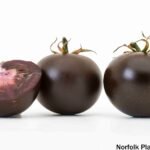Hemorrhoids are painful, unpleasant, and, um, well, difficult to talk about. But they actually are quite common: about half of people over age 50 have had them. However, they’re easy to treat and manage.
“Hemorrhoids can be troublesome and embarrassing, but they often shrink on their own with simple self-help care and over-the-counter remedies,” says Dr. Howard LeWine, assistant professor of medicine at Harvard Medical School.
What are hemorrhoids?
Hemorrhoids are swollen veins near the anus. Common symptoms are rectal pain, itching, bleeding, and occasional protruding veins outside the anus.
There are two types of hemorrhoids: internal and external. You can have either type by itself, or both at the same time.
Internal hemorrhoids. These form inside the anal canal and usually are painless. However, they may cause intermittent bleeding with bowel movements, and sometimes discharge mucus. Internal hemorrhoids also can protrude outside the anus and look like small, grapelike masses.
External hemorrhoids. These form just outside the anal opening and can cause swelling, protrusions, and discomfort.
Why do hemorrhoids occur?
Sometimes hemorrhoids develop for no reason, but often they are associated with chronic constipation or diarrhea, straining during bowel movements, and prolonged sitting on the toilet. You can reduce your risk by following these three easy steps:
- Get enough fiber in your diet (guidelines suggest 14 grams for every 1,000 calories)
- Stay well hydrated (drink six to eight glass of water daily)
- Exercise regularly (aim for 150 minutes of moderate-intense activity per week).
Are there natural treatments for hemorrhoids?
First, some very good news: Neither type of hemorrhoid is dangerous, and severe complications that require medical care are rare. Symptoms often can be relieved by trying a few natural and self-care treatments.
- Draw a sitz bath. To relieve itching and irritation, fill a tub with three to four inches of warm (not hot) water and sit in it with your knees bent for about 10 to 15 minutes. Gently pat yourself dry with a towel, but don’t rub the area.
- Take fiber supplements. These draw water into your stool and make it easier to pass, helping to reduce hemorrhoid bleeding and inflammation. A psyllium husk fiber supplement, like Metamucil or a generic version, is a good choice. If psyllium causes gas or bloating, try a supplement with wheat dextrin (Benefiber) or methylcellulose (Citrucel).
- Ease discomfort. Apply over-the-counter products that shrink the inflamed tissue and relieve itching. Try pads infused with witch hazel (Tucks), or soothing creams that contain lidocaine, hydrocortisone, or phenylephrine (Preparation H).
You can also take steps to prevent flare-ups.
- Don’t delay. Putting off bowel movements can cause stool to back up, leading to increased pressure and straining, which aggravates your hemorrhoids.
- Sit right. Try not to sit on the toilet for long periods; this tends to make hemorrhoids push out and swell up. A way to speed up things is to elevate your feet with a step stool as you sit. This changes the position of your rectum to allow for easier passage of stools. Also, using a cushion beneath you when you sit on a chair or hard surface can ease swelling.
- Keep it clean. After every bowel movement, gently clean your anal area with a witch hazel pad, a soothing baby wipe, or a cotton cloth soaked in warm water. If you have any irritation afterward, apply petroleum jelly or aloe vera gel.
The post Natural remedies for hemorrhoids appeared first on Harvard Health Blog.











